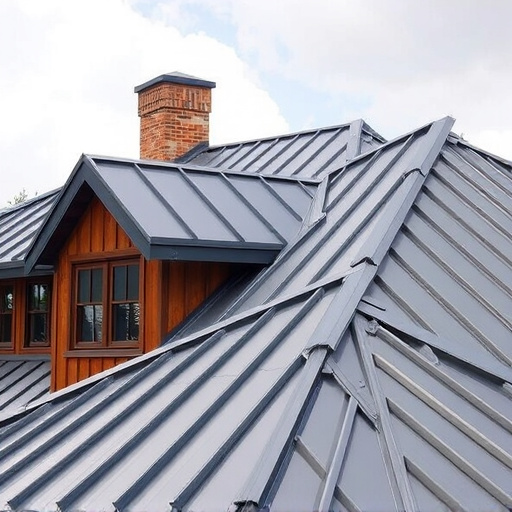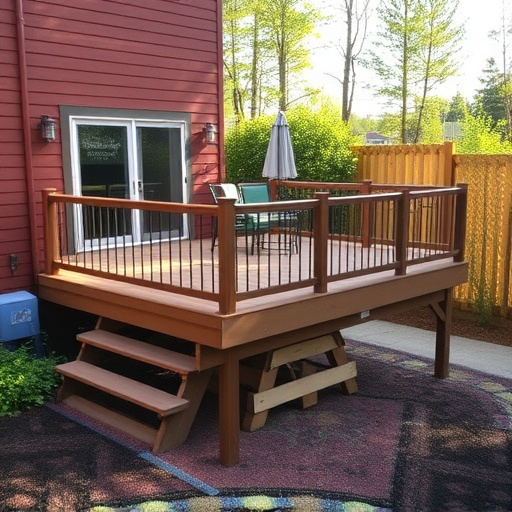This text emphasizes the importance of considering deck boards' environmental impact in sustainability discussions. It encourages using eco-friendly materials like recycled plastic composites or responsibly sourced wood, which reduce deforestation and carbon emissions. Durable options with low-VOC finishes and resistance to rot, insects, and UV damage are recommended for long-lasting, low-maintenance decks while minimizing future replacements. Deck boards made from recycled plastic lumber and composite decking stand out as sustainable alternatives, offering durability and design versatility for both residential and commercial projects.
Choosing sustainable deck boards is a crucial step in creating an eco-friendly outdoor space. This guide will help you navigate the options, understand their environmental impact, and make informed decisions. From composite materials to recycled plastics and natural woods, each type offers unique benefits and contributes to a greener future. By considering factors like durability, maintenance, and certification, you can select deck boards that align with your sustainability goals, ensuring both performance and environmental responsibility.
- Understanding Deck Boards and Their Impact on Sustainability
- Factors to Consider When Choosing Eco-Friendly Deck Board Materials
- Popular Sustainable Deck Board Options and Their Benefits
Understanding Deck Boards and Their Impact on Sustainability
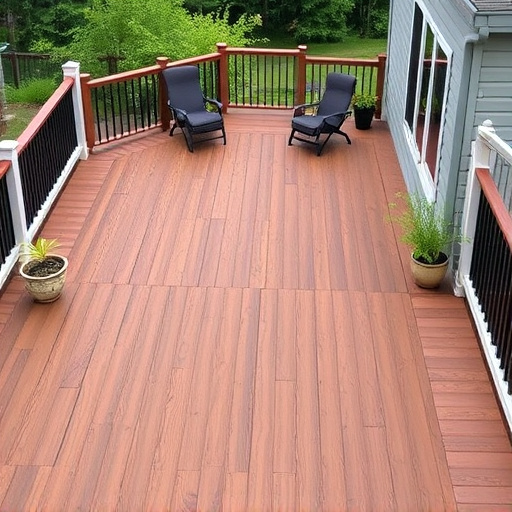
Deck boards are a fundamental component in constructing and maintaining outdoor living spaces, but their impact on sustainability is often overlooked. These boards, which form the surface of a deck, play a crucial role in defining the structure’s durability, aesthetics, and environmental footprint. When considering sustainable options for deck boards, it’s essential to understand the materials’ sources, production methods, and potential long-term effects on the environment.
Choosing eco-friendly deck boards goes beyond visual appeal; it involves evaluating the lifecycle of the material. Traditional deck board options often contribute to deforestation and carbon emissions due to the use of virgin timber or non-sustainable manufacturing processes. In contrast, innovative materials like recycled plastic composite boards or engineered wood products derived from responsibly managed forests offer more sustainable siding services. Professional roofing services that prioritize eco-friendly deck boards can significantly reduce a structure’s environmental impact while providing long-lasting, low-maintenance solutions for both residential and commercial projects.
Factors to Consider When Choosing Eco-Friendly Deck Board Materials
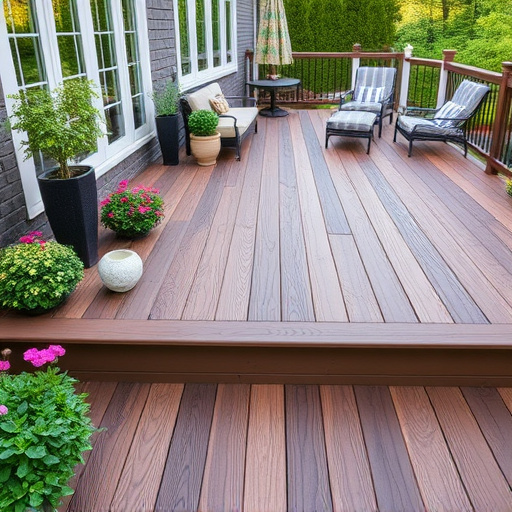
When selecting sustainable deck boards, several key factors come into play. First, consider the material’s environmental impact. Opt for options made from recycled or sustainably sourced materials like reclaimed wood, bamboo, or composite blends that minimize deforestation and reduce carbon footprint. Next, evaluate durability and longevity to ensure your choice withstands the test of time, reducing the need for frequent replacements. This not only conserves resources but also saves you money in the long run.
Additionally, think about the product’s finish and treatment. Look for low-VOC (Volatile Organic Compound) finishes that are environmentally friendly and safe for indoor air quality. Avoid materials that require excessive chemical treatments or preservatives. Moreover, check if the deck boards offer any additional benefits like resistance to rot, insects, and UV damage, ensuring a longer-lasting and lower-maintenance outdoor space. These considerations will guide you towards making an informed decision that aligns with both your eco-conscious values and practical needs for your residential siding or professional decking projects.
Popular Sustainable Deck Board Options and Their Benefits
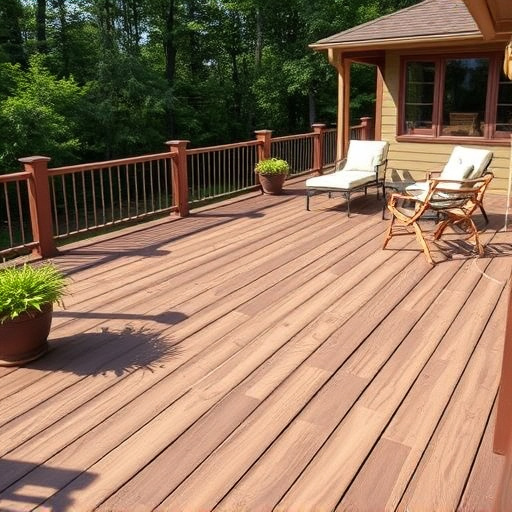
When it comes to sustainable deck boards, several eco-friendly options have gained popularity due to their environmental benefits and durability. One of the leading choices is recycled plastic lumber, often made from reclaimed plastic bottles and other waste materials. This material is incredibly durable, resistant to rot and pests, and requires minimal maintenance—a significant advantage over traditional wood deck boards. Its production also reduces the demand for new plastic, contributing to a cleaner environment.
Another preferred option is composite decking, which combines recycled wood fibers with high-performance plastics. Composite deck boards offer superior resistance to fading, cracking, and warping compared to natural wood. This makes them an excellent choice for both residential and commercial siding projects, ensuring exterior home improvements that stand the test of time. Moreover, their low maintenance nature and ability to create intricate designs make them a versatile pick for various architectural styles.
When selecting deck boards, prioritizing sustainability ensures a greener outdoor living space. By understanding the impact of materials and considering factors like sourcing, composition, and recyclability, you can make an informed decision. Popular sustainable options like recycled plastic, composite wood, and bamboo offer durability, low maintenance, and environmental benefits. Choose wisely to create a beautiful deck that aligns with eco-conscious values.





